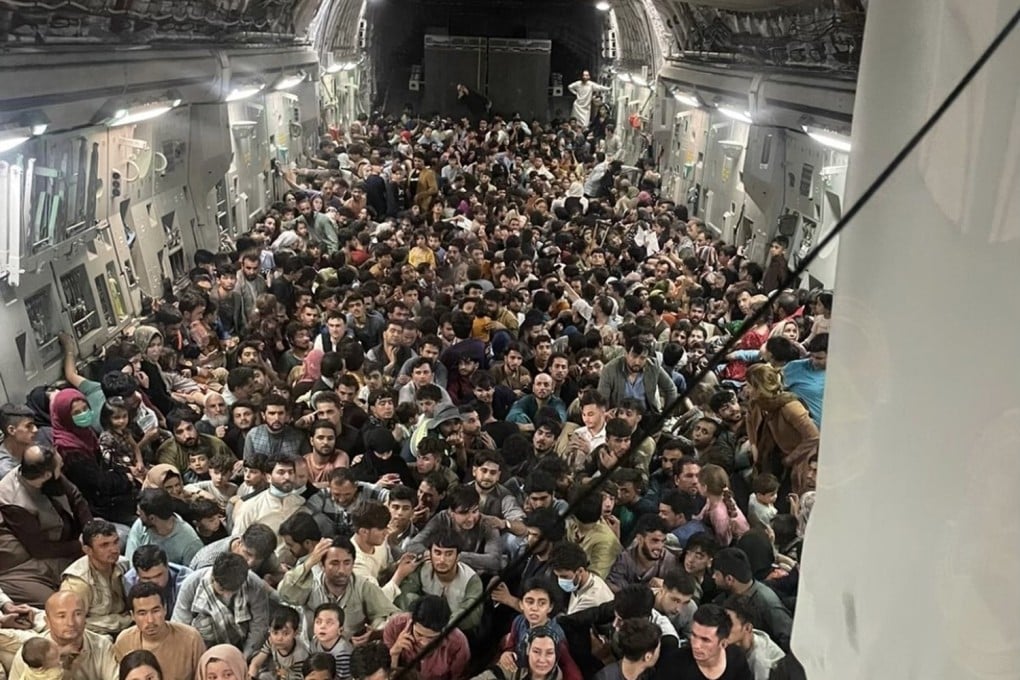Afghan refugees in India and Indonesia speak out: ‘am I a human or not?’
- Aasad’s 5-year-old brother was beaten to death; Bibi fled her teaching work when the Taliban came after her; Sahil got one of the last planes out of Kabul. Now they are safe but are haunted by thoughts of what is to come for those they left behind
- More than 14,000 Afghans have settled in the Indian capital of New Delhi and 8,000 are estimated to be in Indonesia. Here are some of their stories

About 2.5 million Afghans are scattered around the globe, in the United States, parts of Europe, Australia and Southeast Asia, making them the second largest refugee population in the world, according to the United Nations High Commissioner for Refugees (UNHCR). Many fled the country in the years following the US invasion in 2001, due to economic and security instability. More than 14,000 have settled in the Indian capital of New Delhi. Many run bakery stores, medicine shops and restaurants in the lanes of Lajpat Nagar and Bhogal. An estimated 8,000 are in Indonesia but as the country does not take in refugees, the asylum seekers are confined to camps while they wait for a third country to take them in. Now with the Taliban’s seizure of Kabul, Afghan refugees are grappling not just with daily challenges but worries for the fate of their families back home. Here are their stories, in their own words:

‘Why can you not hear my voice?’
Bibi Rahima Farhangdost, 31, is a Shia Muslim Sadat from Ghazni. She left Afghanistan in 2014 and now lives in West Java.
“Unfortunately my mother and three nephews are still in Afghanistan. I haven’t been able to contact them for three weeks because their number doesn’t work. I don’t know if they are alive or dead or if they have left. I am so worried about them. I feel worried not just for my family but for all of Afghanistan. The Taliban have not changed. They still have their own limitations that they want to put on the Afghan people. I don’t believe them at all. Just like the president, they are politicians. Our president said he would not leave us but he did. We cannot forget how the Taliban burned our homes and killed our people so we don’t believe them. We know what they have done, especially to women in Afghanistan.
“I am really worried. I can’t do anything here. I can’t even contact my family. I would like to bring them to Indonesia if I can. My nephew is getting big now, he is 16, and if the Taliban knows his father was a police officer it will be very dangerous. I can’t sleep at night because I am so worried about my family.
“Life is very hard for me in Indonesia. One day passing feels like a year. But I am trying to learn from this. I work as an interpreter here for other refugees and teach classes, one in Bahasa Indonesia and one in English. I am also still trying to serve my fellow refugees as a nurse, but I am limited by my own health as I have asthma.